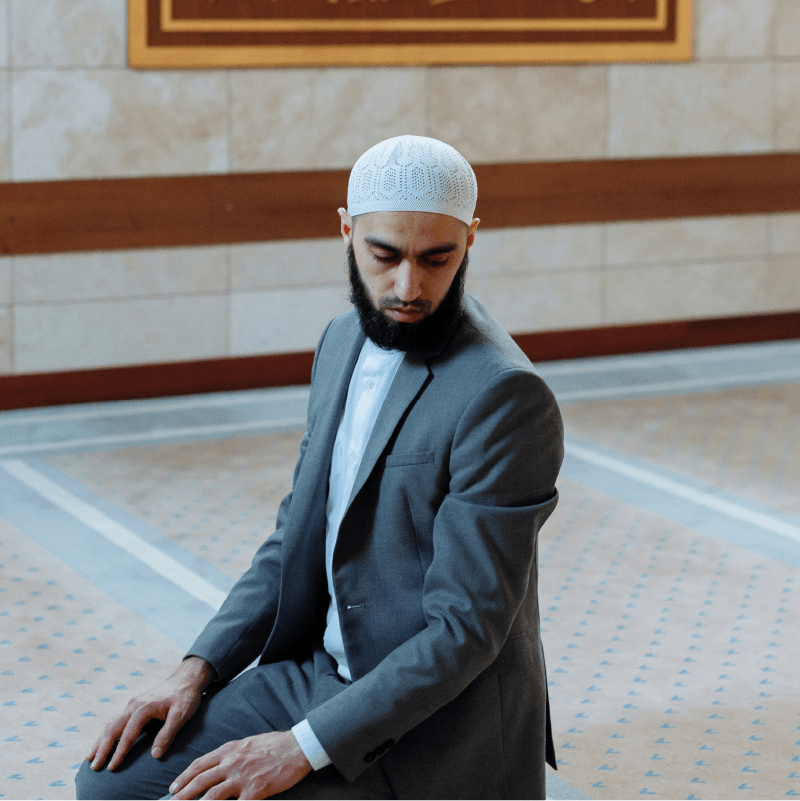Choosing a husband goes beyond coordinating schedules and matching your outfits on Eid day. It’s about selecting your teammate in life’s adventures, the co-author of your family story, the father to your mini-me’s and the anchor through every high and low tide of existence.
Here we discuss some of the cornerstones in what to consider when finding the best husband to accompany you in the dunya and beyond.
Deen: The Eternal Compass
At the heart of your search for a life partner should be his commitment to Deen. After all, looks will eventually surrender to age, and wealth can disappear as quickly as it appears, but a foundation built on faith endures. As Allah outlines in the Qur’an, “And they (women) have rights (over their husbands as regards living expenses) similar (to those of their husbands) over them (as regards obedience and respect) to what is reasonable, but men have a degree (of responsibility) over them. And Allâh is All-Mighty, All-Wise.” [Al-Baqarah 2:228]. This indicates that a man has a protective and guiding role in the relationship, a responsibility to shepherd his family through the intricacies of life with wisdom and devotion. A devout husband wakes each day with his heart tethered to the teachings of the Prophet Muhammad ﷺ, who said, "The believers who show the most perfect Faith are those who have the best behaviour, and the best of you are those who are the best to their wives" [At-Tirmidhi]. This Hadith not only highlights the importance of piety but underscores the significance of kindness and exemplary behavior towards one's wife.
If a man’s moral compass isn’t guided by deen, then what is it guided by?
Moreover, the basics of Deen, such as tawheed, salah, sawm, zakat, and hajj, form the pillars upon which a righteous life is built. A husband who is negligent in these duties may also neglect his responsibilities towards his family. For instance, it was narrated that the Prophet Muhammad ﷺ said, “The covenant that distinguishes between us and them is the prayer, and whoever neglects it has disbelieved” [Muslim]. Therefore, it’s crucial to consider a potential spouse's religious practice and his commitment to the fundamental aspects of Islam.
For those sisters who are more advanced in their deen (Allahumma baarik), you may want to add some more shuroot (conditions), such as praying in the masjid, seeking knowledge from sound sources upon the Qur’an and Sunnah, having a beard, and so on.
Adab and Akhlaaq: The Mirror of the Soul
Adab and akhlaaq (manners and morality) are the reflections of a person’s inner faith and his understanding of it in his daily interactions. A man who embodies the prophetic traits of kindness, respect, and moral integrity is like a rare gem in today’s liberal and hedonistic society; his value is intrinsic and shines through in his actions. It’s essential to observe how he treats others, especially in situations that test his patience and character. After all, the Prophet Muhammad ﷺ taught us, “Verily, among the best of you are those with the best character.” [Bukhari 3559 & Muslim 2321] which is a powerful reminder of the significance of gentle and respectful conduct within the most intimate human relationships.
Physical Attraction: The Spark and Beyond
While Deen and character hold the torches of importance, physical attraction acts as the spark that can help ignite the flame of marital bliss. It is important to feel a basic level of attraction towards your potential husband—this facilitates mutual comfort and affection. However, this should not be the main criterion, as the Prophet Muhammad ﷺ reminded us that the best believers are those who are best in behavior, which ultimately sustains the glow of attraction as outer beauty wanes. The man who treats you well and is a good father to your children is easy to love.
As a baseline, all men (and women) should make efforts to keep themselves in shape through a good diet and exercise.
Money: A Tool, Not a Goal
In matters of finance, Islam provides clear guidance. The Qur’an states, “Men are the protectors and maintainers of women, because Allâh has made one of them to excel the other, and because they spend (to support them) from their means.” [An-Nisa 4:34]. This emphasizes that while men are tasked with financial responsibility, wealth itself is not the essence. The true measure of a man is not his bank balance but his ability to manage whatever resources Allah has bestowed upon him with wisdom and justice. Allah advises, “Let the rich man spend according to his means; and the man whose resources are restricted, let him spend according to what Allah has given him” [At-Talaq 65:7]. Therefore, consider a man’s prudence, generosity, and his vision for the future more than his current financial status.
So does he need to be rich? No. Not at all. We recommend looking for the following qualities when it comes to his worldly wealth: having a plan for the short, medium and long term future, ambition, discipline, with an emphasis on earning halal money.
Protective Jealousy: A Sign of Care
In the intricate dynamics of marriage, protective jealousy (ghayrah) serves as a measure of care. It reflects a husband's commitment to upholding the sanctity and privacy of the marital bond within the bounds of Islamic teachings. The Prophet Muhammad ﷺ exemplified this trait with a balance of dignity and compassion, showcasing how protective jealousy should manifest. It's a quality that demonstrates his vigilance in safeguarding the values and well-being of his family, ensuring a nurturing environment free from harmful influences. Allah's guidance in the Quran underscores the importance of protective jealousy within the family structure. "Men are the protectors and maintainers of women, because Allah has made one of them to excel the other, and because they spend (to support them) from their means." [An-Nisa (4:34)]. This verse highlights the responsibility bestowed upon men to safeguard their families, including their wives, with care and consideration. Moreover, the Prophet Muhammad ﷺ emphasized the significance of protective jealousy in maintaining family integrity. He said, "Verily, Allah is jealous, and the believers are jealous, and Allah's jealousy is that the believer should not commit adultery" [Bukhari and Muslim]. This Hadith underscores the parallel between Allah's protective jealousy over His believers and the healthy protective jealousy that should exist within marital relationships. Furthermore, the Prophet ﷺ warned against the grave sin of being a dayooth, a man who shamefully tolerates his wife's or female relative's adultery or immodesty. He said, “Three people will not enter paradise, and Allaah will not look to them on the Day of Judgement: the one who is disobedient to his parents, the woman who imitates men and the ad-Dayooth.” [Ahmad & At-Tirmidhi]. This Hadith emphasizes the necessity of protective jealousy as a sign of honor and dignity within marriage.
Free-mixing: The Gateway to Zina
Men should not have relationships with non-mahram women, period. Whether it be friends, female cousins, and so on. This extends to social media; if he has female friends, or follows a bunch of non-mahram women on his personal social media or a bunch of non-mahram women follow him, this is a red flag.
In sum, choosing a husband is about finding balance—a partner who brings both spiritual and worldly compatibility to the marriage, with an emphasis on deen, adab and akhlaaq above all. It’s about discerning the depth beneath the surface, recognizing a man’s commitment to his faith, his moral compass, his respect for others, and his ability to fulfill his responsibilities. These qualities, when harmonized, form the foundation of a strong, loving, and enduring marital bond.



